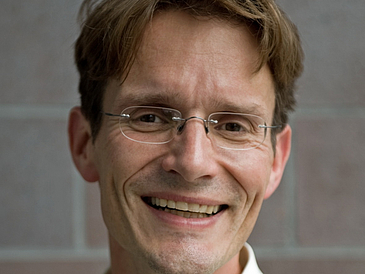In December the DFG [German Research Foundation] granted the University of Bremen a new trans-regional research group, in which the University of Oldenburg, the Technical University Hamburg-Harburg, and the FU Berlin will also be involved. The group is to be led by chemists, physicists, and engineers at the University of Bremen. Over an initial three-year period they will be investigating possible applications for nanoporous gold, a newly developed catalyst material. The project with the title “Nanoporous Gold – A Prototype for a Rational Design of Catalysts” will be funded in excess of two million euros.
During earlier investigations the participating researchers had already discovered the potential for nanoporous gold to act as a catalyst in oxidation reactions. They now want to go on to obtain some more fundamental insights into the properties of this innovative catalyst material. More specifically, they want to shed light on properties in its gaseous and liquid phases, and in the area of electrocatalysis. “Our team is made up of work groups comprising research scientists who are arguably world leaders in nanoporous gold research”, says Professor Marcus Bäumer from the Institute for Applied and Physical Chemistry at the University of Bremen, who is the lead investigator and spokesman for the new Transregio Research Group. “We have set ourselves the task of advancing research on this topic at home and abroad, and consolidating our leading position in the field.”
Nine work groups
The Transregio Research Group encompasses nine work groups in all. Four of these are located at the University of Bremen, where the respective leaders are Dr. Arne Wittstock, Dr. Lyudmilla Moskaleva, Professor Andreas Rosenauer and Professor Marcus Bäumer. Two are at the University of Oldenburg and led by Professor Gunther Wittstock and ProfessorThorsten Klüner. Professor Wittstock is also the research group’s deputy lead investigator and spokesperson. The two groups at the TU Hamburg-Harburg are led by Professor Jörg Weissmüller and Professor Stefan Müller. Last, but by no means least, the FU Berlin is represented with one project, which is led by Professor Thomas Risse.
What is a DFG Research Group?
“DFG Research Group” is the name given to collaborative projects involving very close cooperation between groups of outstanding scientists who join together to investigate one particular research topic. Because of the nature of the topics involved, such projects require much more time and expenditure than normally permitted in the case of individual projects. By funding such collaborative groups of researchers the DFG enables research over the medium term – usually six years. DFG Research Groups help to establish new lines of research.
If you would like to receive more information on this topic, please contact:
University of Bremen
Faculty of Biology/Chemistry
Institute for Applies and Physical Chemistry
Professor Marcus Bäumer (Spokesman for the DFG Transregio Research Group)
Phone: +49 421 218-63170
e-mail: mbaeumerprotect me ?!uni-bremenprotect me ?!.de

